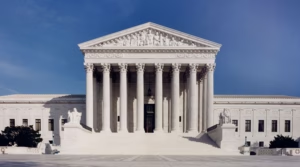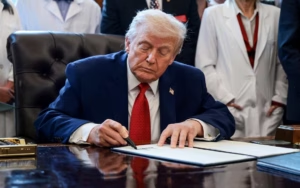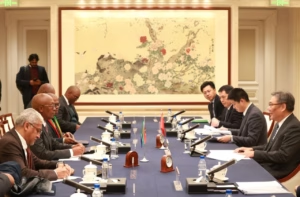Public sector workers in Nigeria on the minimum wage will see their salaries double after the government reached an agreement on Thursday with labor unions that have been threatening further strikes as the cost of living spirals.
The new minimum monthly wage is set at 70,000 naira ($44), six times lower than what the unions were demanding. They accepted the offer with “mixed feelings” considering the country’s economic woes, Nigerian Labour Congress President Joe Ajaero said Thursday after meeting with President Bola Tinubu in Abuja, the nation’s capital.
“Mixed feelings”
The new pay award will not take immediate effect as federal lawmakers must still pass a new law to approve it.
Since assuming office in Nigeria in May last year, Tinubu enacted policies that include doing away with fuel subsidies and unifying the country’s multiple exchange rates, leading to the devaluation of the naira against the dollar. Gasoline prices have more than doubled and inflation has continued to rise further as a result, reaching 34.1% last month, the highest in nearly three decades.
Unions were asking for the current minimum wage of 30,000 naira to be increased to nearly 500,000, which the government rejected, resulting in a fresh strike that grounded Africa’s most populous country to a halt.
Even though the new minimum wage is still far below what the workers had requested, Nigerian governors said when it was first proposed that many of their states cannot afford it. The new law would compel them to adopt the pay increase.
Despite being one of the top crude oil producers in Africa, Nigeria remains one of the world’s poorest countries. Chronic corruption means the lifestyle of its public officials never mirrors that of the general population.
While lecturers and medical professionals often have to go on strike to protest meager wages, politicians still earn huge salaries and regular monetary compensation even for unofficial functions.
Last year when President Tinubu approved millions of dollars in spending for sport utility vehicles, among the beneficiaries was his wife, whose office is not constitutionally recognized.
“constitutional”

















